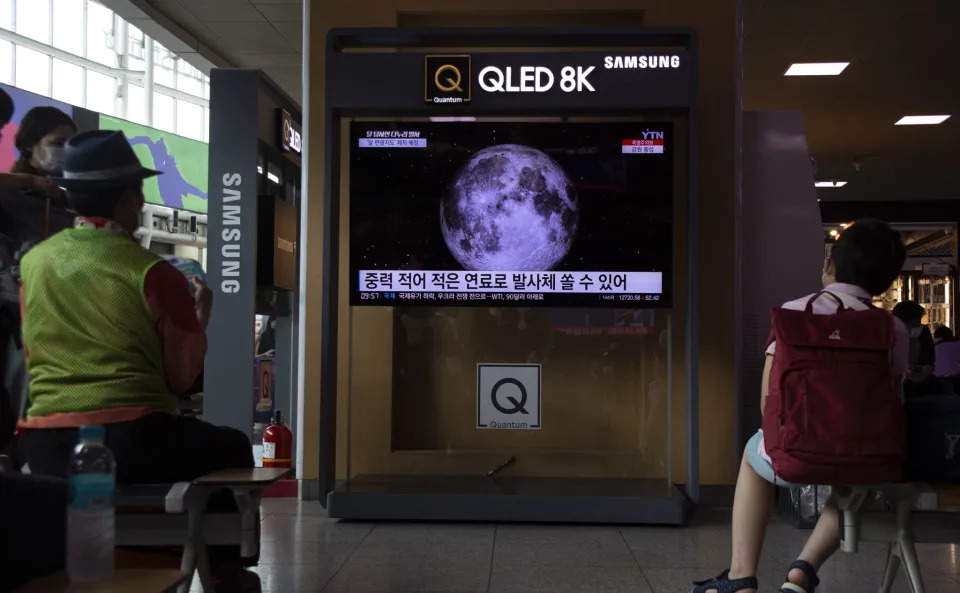South Korea announced on Monday that its first lunar probe, Korea Pathfinder Lunar Orbiter (KPLO), has successfully set course for its destination after launch, marking a new stage in South Korea’s space exploration program.
The KPLO spacecraft, known in Korean as Danuri, established its first communication with a NASA network antenna in Australia at 9:40 a.m. South Korean time (00:40 GMT) on Friday, about 90 minutes after being launched with success on board a SpaceX Falcon 9 rocket from Cape Canaveral, Florida (USA), according to the South Korean Ministry of Science.
South Korea confirmed about four hours after launch that the probe was traveling on its intended path to the Moon, with its solar panels generating power and all onboard devices working properly.
Danuri’s estimated journey time is four and a half months to orbit the moon, where it plans to conduct scientific operations for about a year.
This mission will mark “a first step in the history of South Korea’s space exploration,” said the Asian country’s Science Minister, Lee Jong-ho, in remarks after the launch at Cape Canaveral, reported by the Yonhap news agency. .
“There is still a long way to go for Danuri, including entering lunar orbit and carrying out its one-year mission,” Lee noted.
The objectives of this mission are “to develop lunar exploration technologies, demonstrate a ‘space internet’ and conduct scientific investigations of the lunar environment, topography and resources, as well as identify potential landing sites for future missions,” according to NASA. collaborator in the project.
The ship or space probe has a cubic shape and carries two wings of solar panels to charge the energy it uses, and also has a satellite dish mounted on one of its arms. Its unladen weight is 550 kilograms.
Danuri is the first South Korean space mission to travel beyond Earth’s orbit and, in addition to the aforementioned objectives, aims to identify potential landing sites on the Earth’s satellite for future missions.
NASA and the South Korean Aerospace Research Agency sealed a collaboration agreement in 2016.
If Danuri succeeds, South Korea would join the club of countries or agencies that have carried out lunar landing or moon exploration missions (the United States, China, Japan, India, the European Union and the former Soviet Union).
The start of Danuri’s mission takes place after South Korea successfully launched its first space rocket, called Nuri, at the end of last June, another important step to turn the Asian country into a space power and that may also bring advances in military matter.

